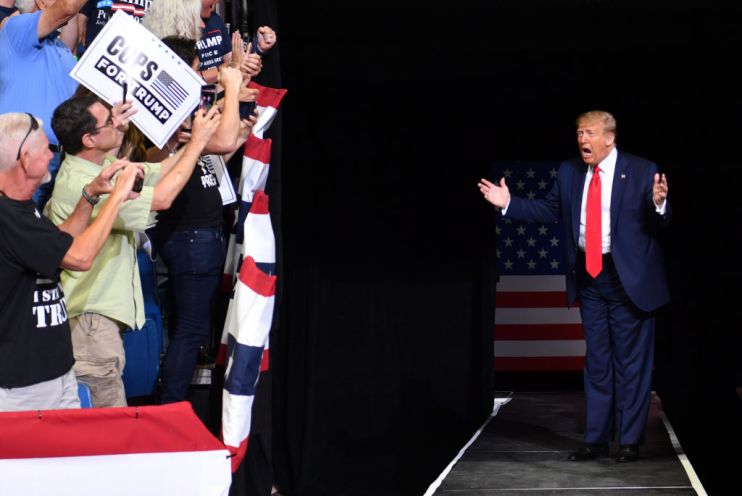Trump versus Biden: The battle of the brands

Politics should always be about policies. But in this “post-truth” era, US politics in particular has become disconnected with policy.
Instead, the 2020 presidential showdown is about brands: Brand Trump versus Brand Biden.
In a normal election year, the presidential race would be up and running right now, with polling numbers over analysed, policies and tactics set, and well-rehearsed speeches on repeat from state to state.
But this isn’t a normal year. The Covid-19 crisis and the anti-racism protests across America have made this election anything but normal. It has set a new and unknown framework that will be fascinating to watch.
This framework has helped to form two very different brands — Donald Trump and Joe Biden. How these develop and evolve will be the key to who wins the White House in November.
Brand Tump stands for power, strength, masculinity, and no-nonsense anti-PC “normal guy” talk. If Trump were an FMCG brand, “power”, “strength” and “winning” would appear as key words in the so-called brand funnel — he uses them in almost every speech or comment he makes.
The US President follows textbook brand behaviour of simple messages, repeated consistently. “God Bless the USA” music blasts out at every rally. He wears the same red tie and the same infamous red cap with the campaign endline “Make America Great Again” (now updated to “Keep America Great”). He identifies enemies, and wherever possible creates an us versus them division in society.
It’s tribal, and it’s been a strong foundation for Trump’s right-wing audience.
In contrast, Brand Biden is a work in progress. With Trump as the incumbent, the natural and easiest position for Biden should really be that of a challenger brand. But his eight years as Barack Obama’s vice president, his mainstream familiarity in America and his age all restrict this challenger position.
Still, there are various attributes to play with for those shaping Biden’s campaign: the positive Obama association and legacy, the “Uncle Joe” good-guy image, the character of the compassionate and empathetic listener who has been there, done it, and understands real people and problems.
Biden is the “soul of the nation”, as his campaign has previously expressed.
The Democratic challenger also has an “anyone but Trump” appeal that he can let play out. But whatever your politics, Biden lacks the energy Trump or indeed Obama are known for. He’s quieter, less aggressive. And there’s also no getting around the fact that he is an ageing brand (he first became a US senator in 1972).
The interesting factor for Brand Biden is that, while he perhaps doesn’t possess or control it, there is huge momentum building in areas of American society that traditionally vote Democrat. Can Biden channel the energy within the Black Lives Matter movement and anti-racism protesters, as well as left-leaning younger metropolitan voters who wanted Bernie Sanders as their candidate, into his brand?
On the flip side, Trump will aim to position Biden as a puppet for the perceived extreme anti-capitalist and ant-American left. Biden’s challenge in playing to this audience without alienating other voters is not straight-forward.
Biden also has another card to play to evolve his brand: his VP pick. An ageing FMCG brand lacking momentum and new news might turn to product innovation, new packaging and a new marketing campaign.
Similarly, Brand Biden can inject more youthful energy, and tap into the younger left-leaning momentum by picking someone like Kamala Harris as his running mate. The quick thinking, smart talking California senator could help modernise Brand Biden and create more of a link to younger generations, using their energy to spread the Democratic message.
Tactics aside, perhaps the key to Biden’s presidential bid may be the implosion of Brand Trump. Under pressure, Trump tends to revert to his right-wing base and doubles down on his tough guy image. He looks for a new enemy and seeks to create further division and partisanship.
Given this, his major backers and surrogates have to commit whole-heartedly and back everything he says. It’s an “all in” strategy that doesn’t work when people waver.
This plan held firm when the economy was on the rise, and even when the Democrats impeached him in December last year. But Trump’s response to the Covid pandemic and then the nationwide protests has been too much for some of his party, and more moderate middle ground Republicans are starting to speak out against him.
If this rejection is echoed across swing-state suburban middle-class America, then Trump’s all or nothing brand may crack.
Biden’s brand would be the perfect tonic.
Main image credit: Getty